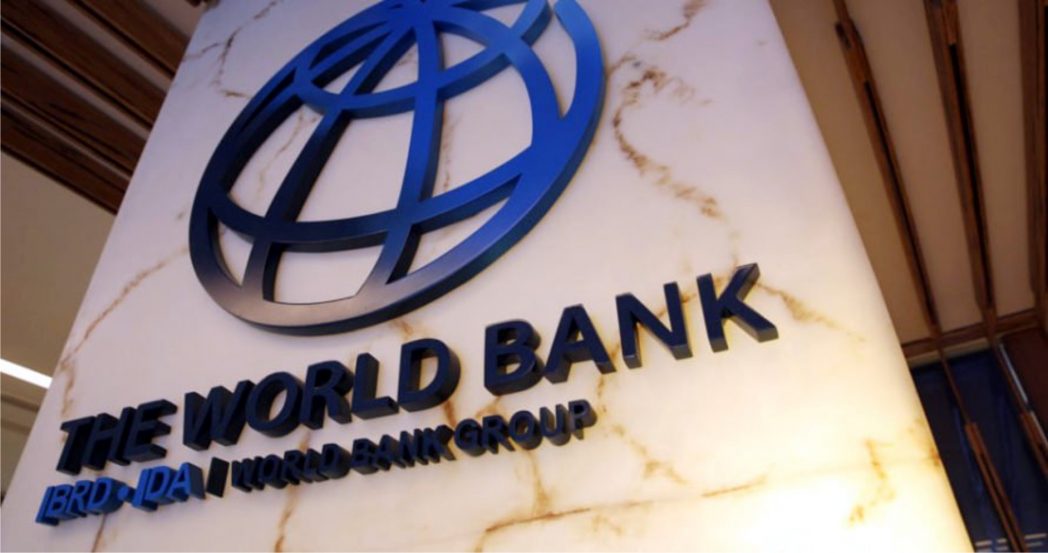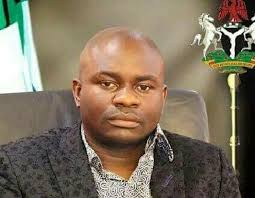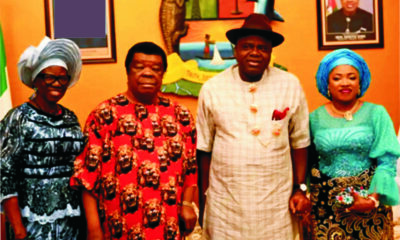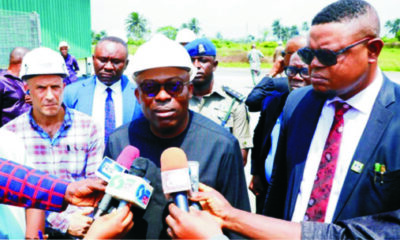News
$114.28m World Bank Loan: SERAP Demands Public Scrutiny, Transparency In Spending

Following World Bank’s approval of $114.28million credit and grant to fight Covid-19 in Nigeria, the Socio-Economic Rights and Accountability Project (SERAP) has asked the global financial institution to prevail on the federal and 36 state governors to accept voluntary scrutiny by Nigerians and civil society regarding the spending of the funds.
SERAP, in an open letter to the World Bank President, Mr. David Malpass, dated August 8, 2020, and signed by SERAP Deputy Director, Kolawole Oluwadare, said “the Nigerian government must be made to publicly commit to transparency and accountability in the spending of the fund, including by publishing details on a dedicated website.
“Details of how they will spend the money to buy medical equipment, and improve access to clean water, sanitation and hygiene, must also be made public”, SERAP demanded.
The World Bank Board of Directors, had last Friday, approved $114.28million financing “to help Nigeria prevent, detect and respond to the threat posed by Covid-19 with a specific focus on state level responses.”
According to the bank, the $100million credit with Project ID number: P173980, is due to be paid back over 30 years, with additional five years grace period.
But SERAP in its letter said “The World Bank has a responsibility to ensure that federal authorities and state governments are transparent and accountable to Nigerians in how they spend the approved credit and grant.
“The bank should tread carefully in the disbursement of funds or distribution of resources to states if it is to reduce vulnerability to corruption and mismanagement.”
SERAP expressed “serious concerns that the money and resources may be stolen, diverted or mismanaged by state governors without effective transparency and accountability mechanisms, especially given increasing reports of allegations of corruption and mismanagement of Covid-19 funds by agencies of the Federal Government and state governments, and impunity of perpetrators.”
SERAP said: “Insisting on transparency and accountability would ensure repayment of the credit, and protect the project objectives and intended purposes for which the funds and resources are approved, disbursed and distributed.”
According to SERAP, “The Bank’s power to provide credits and grants is coupled with a fiduciary responsibility to ensure that governments spending such funds meet international standards of transparency and accountability, including those entrenched in the UN Convention against Corruption to which Nigeria is a state party.”
The letter copied to the World Bank Country Director for Nigeria, Shubham Chaudhuri, read in part: “Implementing these recommendations would prevent a repeat of alleged diversion and mismanagement of recovered Abacha loot disbursed by the Federal Government to state governments.
“The World Bank should make clear to all the governors that it will cancel the credit and grant should they renege on their transparency and accountability commitments to spend the money and use the resources exclusively for Covid-19 related projects, and not to steal, divert or mismanage them.”
“As the level of Federal Government monitoring of the spending of the credit and grant and use of the resources by state governors may be based on political considerations, the bank’s influence might be the only restraining force state governors will take seriously.
“SERAP encourages you and the World Bank in any future engagements with state governments in Nigeria to insist on accessing information on how governors are spending security votes, and the amounts of public funds states are allocating to pay former governors life pensions, among others, as well as consider the level of corruption within each state before approving any credits and grants.
“SERAP also encourages you and the World Bank not to sacrifice international standards of transparency and accountability in the rush to provide Covid-19 credit and grant to the 36 state governments.
“According to our information, the World Bank Board of Directors on Friday, August 7, 2020 approved $114.28million financing ‘to help Nigeria prevent, detect and respond to the threat posed by Covid-19 with a specific focus on state level responses’.
“This includes $100million credit from the International Development Association (IDA) and $14.28million grant from the Pandemic Emergency Financing Facility.
“SERAP notes that the Government of Nigeria is expected to disburse the money and distribute the resources to the 36 state governments and the Federal Capital Territory (FCT) as ‘immediate support to break the chain of Covid-19 local transmission and limit the spread of Coronavirus through containment and mitigation strategies.’
“The approved money will also ‘help to finance federal procurements of medical equipment, laboratory tests, and medicines to be distributed to the states based on their needs, and to provide support to laboratories for early detection and confirmation; equipping and renovating isolation and treatment centres, including community support centres; and improving in patient transfer systems through financing of ambulances and training’.”
SERAP, therefore, urged Malpass and the World Bank to: “Disclose and widely publish the terms and conditions of the credit and grant, and the exact amount repayable by Nigeria in 30 years’ time, including the details of the interest, if any; and the consequences of Nigeria defaulting.
“To also ask President Muhammadu Buhari to instruct the Economic and Financial Crimes Commission (EFCC) and the Independent Corrupt Practices and Other Related Offences Commission (ICPC) to jointly track and monitor spending of the credit and grant by state governments; ask state governments to allow the media to freely report on their spending of the funds and use of the resources, and not to clampdown on journalists and the media in the exercise of their constitutional responsibilities to expose corruption and hold governments to account.
“To also ask state governments to explicitly commit to encouraging and protecting whistle-blowers as a way of ensuring that the funds and resources are not stolen, diverted or mismanaged; clarify if any, to the Bank’s knowledge and information, the credit and grant have been approved by Nigeria’s National Assembly pursuant to its constitutional duties, including its oversight functions under Section 88 of the 1999 Constitution (as amended).
“Ensure increased transparency of sanctions and terms and conditions of the credit and grant to each state to enable Nigerians to ask questions as to the spending of the money and use of the resources from their state governments.”
News
FG Targets Production Of Locally Made Vehicles By Dec
The Minister of Industry, Trade and Investment, Dr Doris Uzoka-Anite, has affirmed that Nigeria now has the capacity and materials to manufacture Made-In-Nigeria cars for local use and export.
With the enabling environment being provided by the government, she said manufacturers should be held responsible if the cars are not rolling out by December 2024.
Currently, Nigeria produces less than 10 per cent of the vehicles used in the country.
Last year, Nigeria’s vehicle assembling industry, estimated to be worth around N302billion, tanked to a new low due to increasing production costs and weakened demand for locally assembled automobiles.
According to the Manufacturers CEOs Confidence Index, activities of motor vehicles and miscellaneous assembly deteriorated further below the benchmark (50 points) from 48.6 to 46.7 points.
But speaking at the Automotive Component Manufacturers meeting in Abuja, she noted that the automobile industry is faced with both challenges and opportunities.
A statement issued last Friday by the Director of Information and Public Relations, Adebayo Thomas, said, “In a significant move aimed at fostering sustainable growth and development in Nigeria’s automobile industry, the Federal Government has issued a clarion call to all stakeholders, including manufacturers, dealers, regulatory bodies, and other players in the automobile ecosystem.
“The call comes as part of a broader strategy to enhance the sector’s contribution to the nation’s economy.”
Encouraging the stakeholders to key into the Nigerian Automotive Development Policy, the Minister said, “As far as we are concerned, the auto industry is now set to go.
“We are counting on all stakeholders to make that happen. If we do not produce made-in-Nigeria cars before the end of this year (December), it will be your fault, because I am sitting down here giving you all the assurances that this administration has created the enabling environment to make sure that the auto policy kicks off.”
Anite emphasised the need for collaboration among manufacturers, dealers, regulatory bodies, and other players in the automobile ecosystem, saying by working together, they can address challenges, streamline processes, and drive innovation.
She also urged stakeholders to maintain high-quality standards across the board, including vehicle manufacturing, safety features, emissions control, and after-sales services.
Stringent adherence to quality, she said, will boost consumer confidence and attract investment.
The minister assured all that the government would continue to encourage increased investment in research and development, adding that, innovations in electric vehicles, fuel efficiency, and alternative energy sources are critical for long-term sustainability.
On local content, she also emphasised the importance of promoting local content by sourcing materials and components locally.
By doing this, she said, the sector can create jobs, reduce import dependency, and contribute to economic diversification
In his introductory comments, the ministry’s Permanent Secretary, Nura Rimi, emphasised the significance of team action and shared vision as outlined in the Nigerian Automotive Development Policy.
He also urged stakeholders that the country “will overcome obstacles and unleash the full potential of Nigeria’s automotive component sector.”
He encouraged NADDC and other stakeholders to use the chance to form alliances, explore new areas of collaboration, and devise ways to catapult the automotive components manufacturing industry to new heights of success.
The statement added, “The government’s charge underscores the pivotal role stakeholders play in shaping its trajectory. Their commitment to sustainable practices will drive Nigeria’s automotive sector towards a brighter and more prosperous future.
“Environmental Responsibility: Stakeholders are reminded of their environmental responsibilities. Sustainable practices, recycling, and eco-friendly manufacturing processes are essential for a greener future.”
News
Waive Tax On Electronic Imports, Women Engineers Appeal To Tinubu
The Association of Professional Women Engineers of Nigeria (APWEN), Lagos Chapter, has called on President Bola Tinubu to exempt the importation of electronic components from taxation for inventive engineers.
Chairman of APWEN, Ms Atinuke Owolabi, said this a in statement yesterday in Lagos, in commenration of the 2024 World Creativity and Innovation Day, with the theme: “Step Out and Innovate”.
The Tide source reports that World Creativity and Innovation Day is a global UN Day, celebrated on April 21, to raise awareness about the importance of creativity and innovation in problem solving.
This is with respect to advancing the United Nations’ sustainable development goals, also known as the global goal.
Owolabi explained that such a measure would significantly enhance technological progress, support local innovators, and elevate Nigeria as a leading hub for innovation globally.
She stated that in a world marked by dynamic challenges and unprecedented opportunities, creativity and innovation stand as the driving forces behind progress and transformation.
According to her, women engineers recognise the critical role that innovation plays in shaping our societies and driving sustainable development.
”On this occasion, we affirm our commitment to fostering a culture of creativity and innovation within our organisation and the broader engineering community.
”Together, let us step out, innovate, and inspire the next generation of women engineers to reach even greater heights of achievement and impact.
”We believe that by stepping out of our comfort zones and embracing new ideas, technologies, and approaches, we can unlock innovative solutions to the complex challenges facing our world today,” she said.
According to her, the theme: ‘step out and innovate’, serves as a call to action for women engineers everywhere to break barriers, challenge conventions.
She noted that it would also pioneer groundbreaking solutions that would propel them toward a brighter and more sustainable future.
Owolabi disclosed that in celebration of the World Creativity Day, APWEN Lagos had inaugurated an artificial intelligence club tailored for female engineering students and young engineers.
She said that the proactive initiative aimed to inspire and equip young engineers with cutting-edge technological insights.
Th chairman said, “Additionally, we already have a 200-capacity hall to set up a resource, technology, and innovation hub to empower women and girls in engineering.
”This endeavour serves as a catalyst for encouraging aspiring female engineers to embrace innovation and stay abreast of emerging trends in the field.
”APWEN Lagos stands united in its dedication to promoting diversity, inclusivity, and excellence in engineering.
“We encourage all female engineers to seize this opportunity to unleash their creativity, explore new frontiers, and make an indelible mark on the world.”
News
Pan-Igbo Group Hails Dangote Group For Reducing Diesel Price
A pan-Igbo group, Ndigbo Unity Forum (NUF), has commended the Chairman of the Dangote Group, Alhaji Aliko Dangote, and his management for reducing the price of diesel from N1,600 to N,1000 per litre.
The Tide’s source reports that diesel is the major fuel used by heavy duty vehicles and generating sets to transport goods as well as run industries across the country.
The President of NUF, Mr Augustine Chukwudum, told The Tide’s source in Enugu, yesterday, that Dangote’s timely response to suffering masses of Nigerians, going through hell to get a meal a day, “is highly commendable”.
According to Chukwudum, Nigerians need to appreciate the patriotism of Dangote since what he has done will go a long way in reducing prices of goods, especially food stuff which has gone out of the reach of the poor.
He called on Nigerians, who wish and pray always for the betterment of the country, to appreciate and thank God for answering their prayer through Dangote’s move.
“It is clear that if Dangote Refinery starts fully and gets all the crude oil needed from Nigeria, the prices of petrol, kerosene and diesel will further reduce.
“We commend President Bola Tinubu for being a listening President and supporting the Dangote Group on our crude oil needs.
“We appeal to Tinubu to encourage Dangote by providing the company with crude oil at a reduced rate as we have been demanding,” he said.
Chukwudum said that this move and subsequent further reduction, would bring industries in comatose back to life, jobs created for unemployed youths and reduction in crime as well.
“We call on governors of oil-producing Anambra, Imo and Abia States to bring investors, who shall build refineries in each of the states to refine thousands of barrels of crude in commercial quantities,” he said.
-

 Politics4 days ago
Politics4 days agoNEC Meeting: PDP’ll Wax Stronger – Farah Dagogo
-
News4 days ago
FG Targets Production Of Locally Made Vehicles By Dec
-

 Sports4 days ago
Sports4 days agoWilkins Backs Rivers Hoopers To Spring Surprises At 2024 BAL
-

 Maritime4 days ago
Maritime4 days agoTinubu, Others To Honour Global Transport Roundtable
-

 News4 days ago
News4 days agoFG To Launch 2,700 CNG Buses, Tricycles Before May 29
-

 Politics4 days ago
Politics4 days agoBayelsa Assembly Grills, Confirms Diri’s Commissioner- Nominees
-

 Focus4 days ago
Focus4 days agoRe-Igniting Rivers Agricultural Stakes
-
Sports4 days ago
NLO: Khana FC Coach Blames Players For Missing Chances











